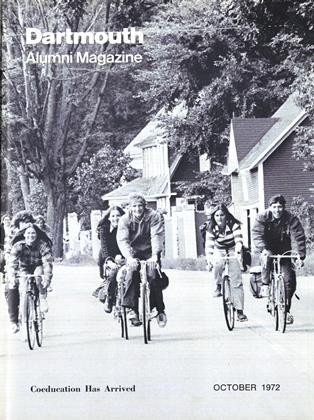Edited byRussell Fraser '47. New York: The Macmilian Company. 534 pp. $5.25.
Chairman of the Department of English, University of Michigan, Professor Fraser in his introduction suggests: "We do not read Shakespeare — or Stendhal or Dante — because they are part of our heritage, which means, customarily, fossils embedded in a petrified culture." Alive today, they are vital writers able to transcend the 19th century or the 13 th or the Elizabethan Age. Because Shakespeare's observation is total and his reporting unreservedly honest, he is "a prime candidate for censorship or the asylum." We trust him because without flinching he recognizes in his plays the existence of evil, and accordingly after 350 years we venerate him as our teacher. He forces us to understand that in ourselves are powerful and endlessly antagonistic forces, the forces of grace versus those of the ebullient and ungovernable will. In this era of mass murder and acts of violence against human beings on a scale hardly thinkable in previous generations, Shakespeare will not allow us to derive a special comfort from the record of history. As ethical modern thinkers we will be forced by the enlightened Elizabethan to eschew the fallacious and comforting assumptions that we are merely observers, not participants. Shakespeare demands that we confront horrors in personal terms.
Professor Fraser offers teachers and students valuable essays, modern in tone, after each play and useful glosses at the bottom of each page. He includes film and records sources in various bibliographies. The plays are Romeo and Juliet, AMidsummer-Night's Dream, King Henry IV:Part 1, Twelfth Night, Hamlet, Othello,Measure for Measure, King Lear, and TheTempest.
 View Full Issue
View Full Issue
More From This Issue
-
 Feature
FeatureBetting man's choice: Dartmouth. Then Harvard, Columbia, Cornell
October 1972 -
 Feature
FeatureVerdict on the Dartmouth Institute: A-OK
October 1972 By ROBERT B. GRAHAM '40 -
 Feature
FeatureCoeducation Becomes A Reality
October 1972 By MARY ROSS -
 Feature
FeatureHanover's "Host with the Most"
October 1972 By JAMES L. FARLEY '42 -
 Feature
FeatureHomage to the great god Pigskin: One hundred years of Ivy rivalry
October 1972 -
 Feature
FeatureNew Facilities in the Making
October 1972
JOHN HURD '21
-
 Books
BooksALL THE BEST IN THE SOUTH PACIFIC.
June 1961 By JOHN HURD '21 -
 Books
BooksNEW ENGLAND SONNETS, ONE HUNDRED SONNETS SELECTED AND REVISED BY THE AUTHOR WITH A FOREWORD BY OGDEN NASH.
APRIL 1967 By JOHN HURD '21 -
 Books
BooksSEVENTY NEW POEMS.
JANUARY 1969 By JOHN HURD '21 -
 Books
BooksHOGARTH ON HIGH LIFE. THE MARRIAGE A LA MODE SERIES FROM GEORG CHRISTOPH LICHTENBERG'S COMMENTARIES.
DECEMBER 1970 By JOHN HURD '21 -
 Books
BooksYOUR JOB: TO HAVE AND TO HOLD.
NOVEMBER 1971 By JOHN HURD '21 -
 Books
BooksARCHITECTURE OF THE WESTERN RESERVE, 1800-1900.
FEBRUARY 1972 By JOHN HURD '21
Books
-
 Books
BooksTHE CONSTITUTION AND THE MEN WHO MADE IT
January 1937 -
 Books
BooksPAUL KLEE AND CUBISM
OCTOBER 1984 -
 Books
BooksAND HOW DO WE FEEL THIS MORNING?
JULY 1964 By CLIFF JORDAN '45 -
 Books
BooksPOLICIES UNDERLYING CORPORATE GIVING.
JULY 1967 By DAVID T. ECKELS '44 -
 Books
BooksThe New Right
November 1979 By Laurence I. Radway -
 Books
BooksAMERICAN INDIAN AND WHITE RELATIONS TO
July 1957 By ROBERT A. MCKENNAN '25


